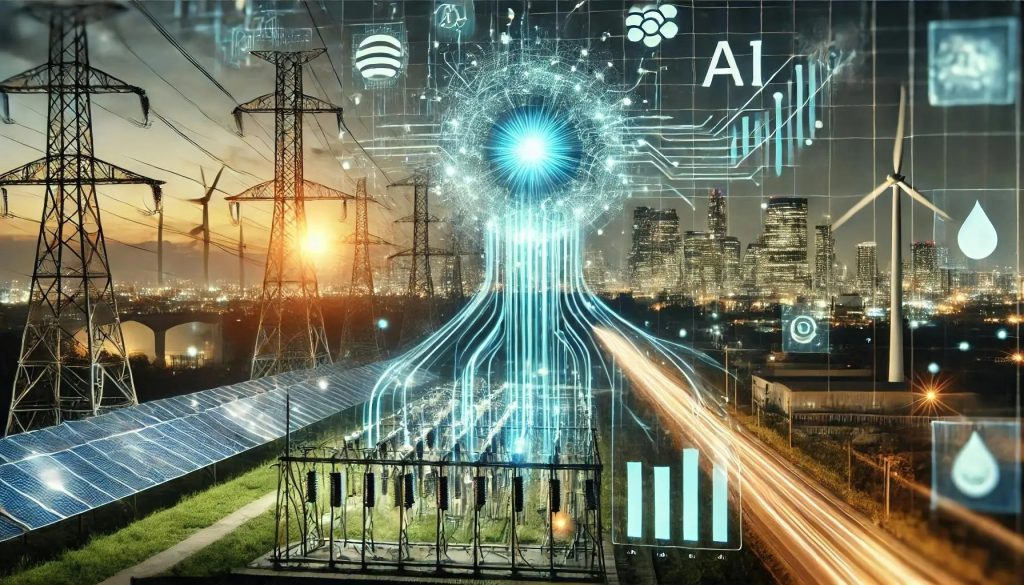Artificial intelligence (AI) is rapidly transforming nearly every sector of society—and now, it’s revolutionizing how cities like Chicago manage energy. As the city pushes forward with its clean energy goals, AI is becoming a powerful tool to make the power grid smarter, more reliable, and more sustainable.
From predicting equipment failures before they happen to helping integrate solar and wind into the grid, AI is taking Chicago’s energy infrastructure into the future. Here’s how this emerging technology is shaping a cleaner and more efficient tomorrow.
What Is a Smart Grid—and Why Does AI Matter?
A smart grid is an upgraded version of the traditional power grid. It uses digital technologies to monitor, predict, and manage electricity flows more effectively. Unlike older systems, which simply deliver power one-way from plant to plug, a smart grid allows for two-way communication between utilities and users. It also helps balance supply and demand in real time, respond quickly to outages, and integrate decentralized energy sources like rooftop solar panels.
This is where AI plays a critical role. By analyzing huge amounts of data—from weather patterns to energy usage to equipment performance—AI helps operators make smarter decisions faster. In short, it makes the grid more adaptive, predictive, and efficient.
How AI Is Powering Chicago’s Energy Revolution
1. Predicting Outages and Improving Grid Resilience
AI algorithms are being used to predict and detect faults in power lines and transformers before they fail. In Chicago, this means fewer unplanned outages during storms or heatwaves, quicker response times, and better planning for infrastructure maintenance. These predictive tools analyze years of sensor and performance data to flag risks early—saving time, money, and inconvenience for residents.
2. Managing Renewable Energy Sources
Chicago is investing in solar and wind energy as part of its Climate Action Plan. But renewables are intermittent—cloudy days and low winds reduce supply unpredictably. AI helps solve this challenge by analyzing weather forecasts and historical usage to predict when and where renewable energy will be available. This allows utilities to adjust supply strategies in advance, reducing waste and keeping the grid stable.
3. Optimizing Energy Usage
Smart meters installed in homes and businesses provide real-time data on electricity use. AI can analyze this data to suggest more efficient energy usage patterns for consumers and better load distribution strategies for utilities. This helps reduce energy consumption, lower costs, and prevent overloading during peak times.
4. Enhancing Cybersecurity
As the energy grid becomes more connected, it also becomes more vulnerable to cyberattacks. AI systems monitor traffic across the network, identifying and responding to suspicious activity faster than traditional methods. This is crucial for protecting Chicago’s critical infrastructure from growing digital threats.
Real-World Examples & Partnerships
Chicago’s energy providers, including ComEd, are already piloting AI-driven technologies. ComEd’s partnership with national labs and tech startups has resulted in smart grid tools that improve outage detection and grid reliability across northern Illinois. Meanwhile, research institutions like Argonne National Laboratory are developing AI systems that model urban energy needs and climate interactions in real time—tools that city planners can use to design more resilient systems.
Challenges and Considerations
Despite its promise, using AI in energy systems brings its own challenges:
- Privacy concerns: Collecting and analyzing energy usage data must be done with strong protections for consumer privacy.
- Equity and access: Smart grid upgrades must be implemented equitably to avoid leaving low-income or underserved neighborhoods behind.
- Investment costs: Deploying AI tools and upgrading infrastructure requires significant upfront investment, even if it leads to long-term savings.
Chicago will need thoughtful policy, cross-sector collaboration, and continued public support to overcome these hurdles.
AI is more than a tech buzzword—it’s becoming a key ally in Chicago’s clean energy journey. By improving efficiency, reducing outages, and helping integrate renewables, artificial intelligence is transforming how the city powers its homes, businesses, and transit systems. As Chicago continues to invest in smarter infrastructure, AI will help ensure that the energy grid of tomorrow is not only more resilient but also more sustainable for everyone.


